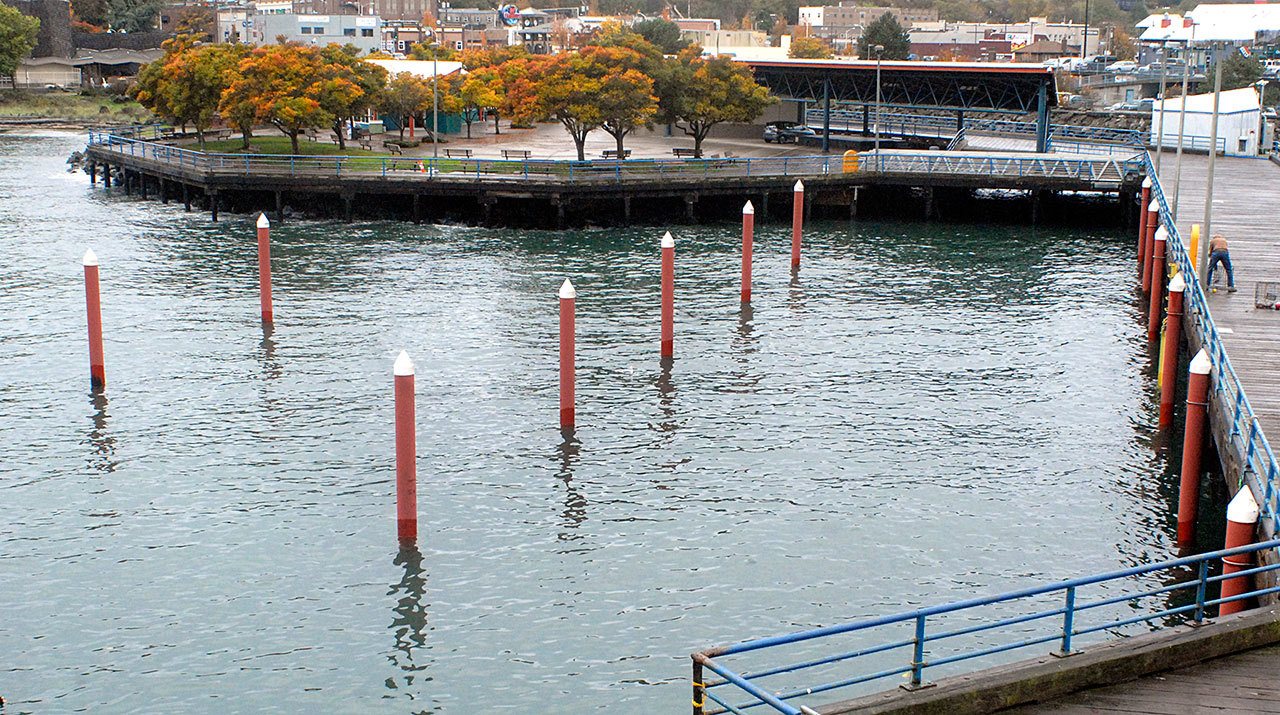PORT ANGELES — Mooring floats that drew kayakers and boaters to the downtown core would return to City Pier by May under a preliminary 2017 city budget unveiled this week, Parks and Recreation Director Corey Delikat predicted Wednesday.
City Council members reviewed 16 proposed capital improvement projects for 2017 that generated little comment during a two-hour work session Tuesday.
The projects list totaled $2.3 million.
It included a $60,000 sound system for Civic Field, $150,000 for Olympic Discovery Trail improvements on Hill Street and $365,000 to replace five sea-worn docking floats that were removed from City Pier in 2012.
The expenditures are part of a $117.8 million spending plan for 2017.
Most of it covers utilities, and of that, the bulk is for the city-owned electric utility, Finance Director Byron Olson said Wednesday.
The proposed budget also includes $20.6 million for 2017 day-to-day, general fund operations compared to $20.3 million for the 2016 general fund.
“The general fund pays for things that most people see,” Olson added, citing police, fire and parks and recreation funding — such as the City Pier float project.
“It’s the stuff most people see when they think of city government.”
A City Council public hearing on funding the 2017 general fund spending plan with $4.5 million in property taxes will be at 6:30 p.m. Tuesday at City Hall, 321 E. Fifth St.
Delikat said he expected the floats to be installed by May if the budget is approved as presented.
The floats were expected to be installed this year but were held up by permitting issues, he said.
Stumbling blocks included a disputed permit that had been required by the U.S. Army Corps of Engineers that U.S. Fish and Wildlife Service says the city does not need, Delikat said Wednesday.
“The corps does not need to be in the process,” he said.
Corps of Engineers spokeswoman Patricia Graesser said late Wednesday that she was unaware of the project but that it appeared the corps would defer to Fish and Wildlife on the project.
“If they find the project is not going to impact endangered and listed species, that’s their call to make,” Graesser said.
Delikat had originally hoped the docks would be installed in 2015, when the city was awarded a $257,900 federal boating infrastructure grant that the city matched with $92,250 in real estate excise taxes.
“I know they are highly used, whether it’s for kayaking or all sorts of things, so we are excited to get them back in,” Delikat said.
“We’ll get them in this year.”
Among capital improvement projects, the City Pier float replacement was second only to $589,600 proposed for a Marine Drive bridge abatement project.
Salaries, wages and benefits account for $13.3 million of the $20.6 million general fund budget.
Police services are $5.4 million of the total, up 4.6 percent from 2016. Police have the largest single departmental budget.
At $2.8 million, public works is down 12 percent.
Property taxes of $4.5 million are projected to increase 2 percent as the second largest single source of revenue.
Utility tax revenue is projected to increase 4 percent to $4.4 million, although rates will be the same as 2016.
Telephone taxes are projected to decrease 40 percent to $365,400 as residents rid themselves of landlines, Olson said.
“That’s not only a Port Angeles problem, it’s a problem statewide and nationwide,” he said.
The city is not allowed to tax phone service purchased as part of a cable TV package, Olson said.
A 1 percent property tax increase that would generate about $45,000 would help fund the spending plan.
But a brand-new tax could be levied by 2018.
Council members pledged to discuss in 2017 whether a tax- or fee-supported transportation benefit district should be established to fuel depleted road department funds in 2018.
City Manager Dan McKeen said Tuesday that he expects council members will discuss the proposal at the beginning of 2017.
________
Senior Staff Writer Paul Gottlieb can be reached at 360-452-2345, ext. 55650, or at paul.gottlieb@peninsuladailynews.com.

